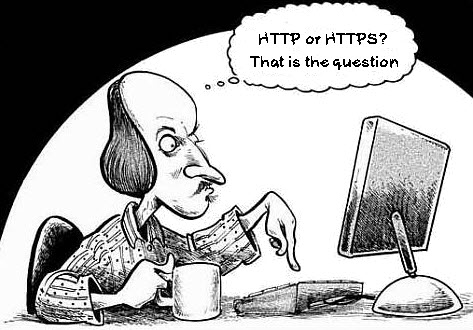
A few weeks ago Google officially announced that HTTPS would now become a ranking signal, for now a very lightweight signal. This news provoked a lot of discussions in the industry. Google has also updated Google Webmaster Tools to better handle HTTPS sites and the reporting on them.
We’ve investigated what are the pros and cons of moving your site to HTTPS, and are ready to share some good tips with you.
HTTPS ensures you can safely send personal data online (like credit card information, login details and so on) without a risk of its leaking to a third party, that is why Google, struggling to make the Web safer, likes it so much. For protecting transferred data, HTTPS uses SSL technology. So, to enable HTTPS for your website, you need to get an SSL Certificate (usually on a paid basis) and install it on your server.
Who Needs HTTPS?
- Any site that is taking transactions. If you have an e-commerce store, HTTPS has been a standard for a long time.
- Any website collecting personal data. If your site needs data for logins, comments or email subscriptions, it is a good idea to use HTTPS to build user trust.
Websites without any sensitive data to transfer have no direct need to switch to the HTTPS protocol. However, having the protocol can help to protect your visitors from phishing and it has now become one of over 200 ranking signals. To ensure that your site meets all search engine standards, you can use WebCEO’s Website Audit.
Pros of Switching to HTTPS:
- Security. HTTPS protects your users’ data from man-in-the-middle attacks.
- Industry Standard. As stated before, HTTPS is a must for any online business that handles cardholder information to comply with the Payment Card Industry Data Security Standard.
- Trust. With growing online security education, many users will trust websites with the HTTPS padlock icon in the address bar more.
- Google Ranking. Google says they now give preference to sites with HTTPS. This impacts only 1% of searches for the time being.
Cons of switching to HTTPS:
- Extra Cost. To move your site to HTTPS you need to purchase and install an SSL certificate on your server. SSL certificates have to be renewed and maintained.
- Site Slowdowns. Encrypting and decrypting information requires extra server processing power and thus can slow down your website.
- Duplicate Content Issues. Make sure you redirect all your HTTP pages to HTTPS. Be careful with absolute internal links within your website, they now need to be edited into the HTTPS URLs or into relative URLs.
- Crawling & Indexing issues. Don’t block your HTTPS site from crawling using robots.txt. Allow indexing of your pages by search engines where possible. Avoid the Noindex meta tag.
- Lost Social Signals. Be ready to lose most of the social signals your site pages had.
To summarize, moving from HTTP to HTTPS will not noticeably improve your rankings at the moment but it is clearly on Google’s radar. There is no penalty involved with running an HTTP site. However, most sites nowadays use the personal data of visitors (comments section, for example) and it is better to have this data encrypted.


